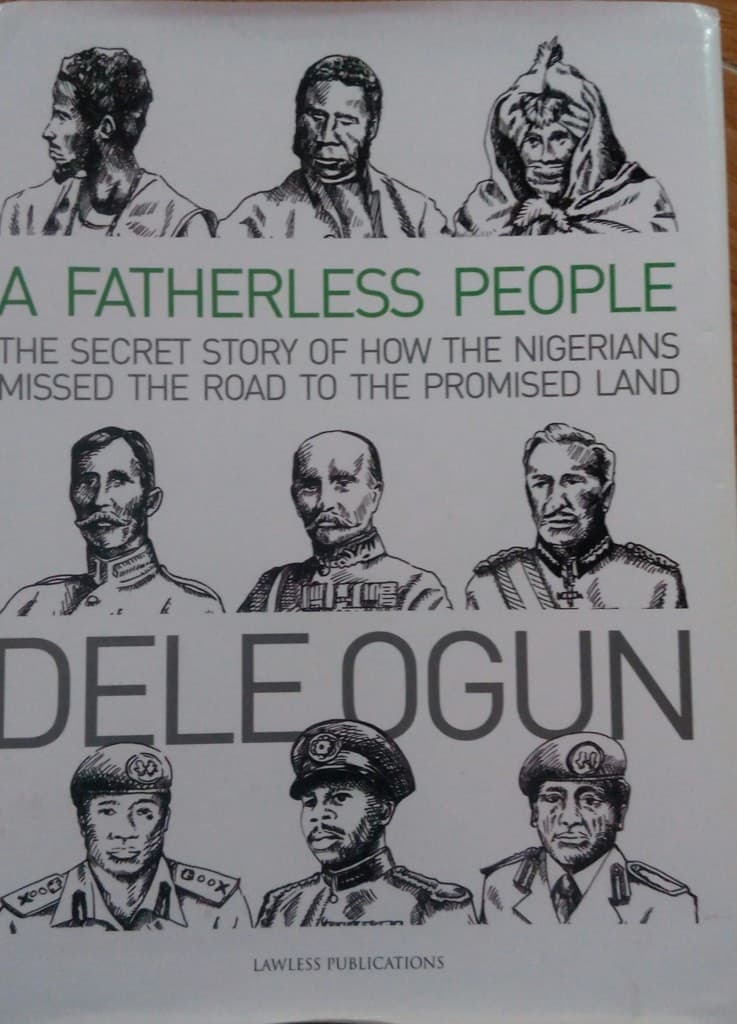How Balawe Declared State Of Emergency In Tiv Country, And Brutally Suppressed The Riot Of 1964
A new book, A Fatherless People, by U.K-based Nigerian Dele Ogun, has detailed how the Northern Peoples Congress (npc) and its coalition partner, the National Council of Nigeria and the Cameroons (NCNC), brutally repressed riots by the Tiv in 1964 over the arrest and detention of Joseph Tarka, leader of the United Middle Belt Congress (UMBC) on treason charges.
Ogun, in perhaps the most telling historical narrative on Nigeria, notes that the move was to break the alliance of the UMBC with the Action Group which had promised to carve a Middle Belt State out of the North.
Advertisement
“The treatment given by the NPC-NCNC government to the Tiv minority in the Northern Region, who were allies of the Western Region, could not have been more different from the new religion that had just been created for the mid-westerners,” Ogun notes on page 238 of the 328 book.
According to the author who cited documents from the British archives, the Tiv were opposed to being part of the One North Policy given that they were predominately Christians.
“Due to their mountainous terrain and their fighting spirit, the Tiv had never been easy to conquer. The British found the task difficult and the Fulani found it impossible. Now the British were leaving, the Tiv were deeply hostile to the idea of being handed over to Fulani rule as part of the One North policy. Being Christians within the predominantly Muslim North, they felt their minority status twice over.
“The Action Group’s policies towards minorities, and specifically the party’s proposal of a Middle Belt State to be carved out of the North, had an obvious appeal to the Tiv. For this reason the United Middle Belt Congress (“UMBC”) under the leadership of Joseph Tarka become a close ally of the Action Group.
Advertisement
“In the NPC’s calculation, this was a dangerous liaison which, if not attacked, had the potential to give the Action Group a bridgehead into the North. With nothing to offer the Tiv to rival the Action Group proposed Middle Belt State, the solution adopted was to frustrate the democratic aspiration of the UMBC with the aid of Tiv traditional rulers on the Native Authority. The trouble had started in the run up to the November, 1959 independence elections.”
Citing Audu Bem’s Tiv Riots of 1960, 1964: The Principle of Minimum Force and Counter Insurgency, the book stated: “By the time the first explosion came in August 1960, the UMBC supporters in Tiv Division had exhausted their patience and tolerance for the local functionaries of the NPC regime. The Government having made it impossible for legitimate opposition voices to be heard made itself vulnerable to violent aggression. Those targeted were the clan and the kindred heads, court presidents and members, tax collectors and generally known supporters of the NPC. The 1960 uprising which first began in Yandev near Gboko soon spread like wild fire to other parts of Tiv Division.”
He further writes: “The response of the NPC-NCNC government to the uprising was ruthless. It dissolved the Native Authority and imposed collective punishment on all Tivs by requiring every adult male to pay reparations for the riot damage. The failure of the same NPC-NCNC government that had carved the Mid-West State out of the Western Region to redress the Tiv grievance in the same way led to a heightened sense of grievance. This, coupled with the arrest and imprisonment on charges of treason of the UMBC leader Joseph Tarka, led to a bloodier uprising in 1964. The Balewa government’s response was to send the army in:
“Of course, this was not the first time the Army would be deployed to Tiv Division since independence. But the November 18, 1964 order was the first time when a massive military force involving a whole battalion (3 NA) including the Recce Squadron was being mobilized for an internal security operation. Troops were never withdrawn again thereafter until the outbreak of the civil war.”
“Thus, in the run up to the Biafran war, the Western Region and its allies, the Tiv, in the middle Belt, were both under effective military occupation. The ‘Special attention’ that was to be given to the Niger Delta Calabar was still to come.”
Advertisement
Ogun is billed for a book tour of major cities of Nigeria in June.




